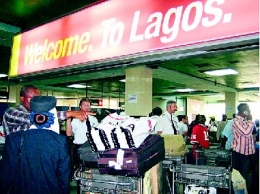‘GO EXPLORE Nigeria,’ the Embassy of Nigeria in Ireland has been urging on its website. ‘Don’t’ is the contrasting message from Ireland’s Depart-ment of Foreign Affairs.
While Nigeria’s embassy in Dublin has been singing the praises of its museums, monuments, game reserves and historical sights, the Department of Foreign Affairs has been advising Irish citizens against “non-essential” travel to Africa’s most populous country.
Nigeria has been accorded the second-highest travel warning on the Department of Foreign Affairs website, one notch below “do not travel”. The other categories are “exercise extreme caution”, “exercise caution” and “take normal precautions”.
A department spokesperson told Metro Éireann: “The travel advice on the website represents the department’s best assessment of conditions on the ground, on the basis of input from our embassy and other sources. We also consult with other foreign services of other countries.”
Conflicts in the Niger Delta – where local militants have initiated attacks against employees of multinational oil companies – are specifically referred to, as are robberies and car-jackings.
The spokesperson said the department had received no complaint from the Embassy of Nigeria concerning the “avoid non-essential travel” warning, but could not confirm how long it has been in place.
Metro Éireann understands that the “avoid non-essential travel” advisory for Nigeria has been active for at least one year.
When contacted by this newspaper, Nigeria’s Ambass-ador to Ireland, Kema Chikwe, said she was not aware of the warning, and termed it “ridiculous”.
Admitting that the oil-producing Niger Delta area held significant dangers, she said that Irish people have been travelling to Nigeria for decades without any problems.
Ambassador Chikwe said her embassy would be contacting the Department of Foreign Affairs to enquire about the advisory, and that there is “no more danger in Nigeria than in Ireland”.
She added: “The Irish-Nigerian Chamber of Commerce recently led a delegation of some Irish businessmen to Nigeria, and I didn’t get the impression that there was any obstacle for them.”
Meanwhile, Nigerians in Ireland expressed their disappointment with the travel warning, and also with their embassy’s awareness of the matter.
Lagos native Felix Damarola, who works in Dublin’s financial sector, commented: “Ireland is one of the countries that Nigeria counts as a good friend, someone that is open to them. This is not going to help.”
Damarola, who is also now an Irish citizen, contended that it’s “only in the oil producing areas that there’s a big problem”, and cited Port Harcourt as a city where frequent kidnappings of westerners have taken place.
Commenting on the failure of the Nigerian embassy to contest the warning level, he said: “That embassy must be the most useless embassy I’ve ever seen.”
Peter Oghina, a photographer originally from Edo State, said: “I want to believe that it’s advice to be careful, because of the kidnappings that have been happening. I cannot blame them for telling their people to be careful.”
However, he indicated that the travel warning in relation to Nigeria as a whole was harsh. “People go to Nigeria every day and they come back talking about how much fun they had. Enough information is not given about Nigeria... it is 140 million people, it’s so big and the Niger Delta is just a part.” He compared it to people being warned off the entire island of Ireland during the Troubles.
Oghina insisted that anyone intending to go to his home region would have a good time. “There are lot’s of things you can do, and we expose you to the richness of Nigeria. Despite the fact that we have leaders who are not sensitive to the needs of the people, Nigeria’s a place people should always consider visiting.”
He also noted that Nigeria’s embassy “has got a lot to do” in promoting a better image of his native land. “They don’t do enough,” he said, “and they haven’t even started.”
Advertising consultant Amaka Okonkwo from Anambara State recently visited her birth country for the first time in nearly nine years, bringing her three Irish children, all under seven, along with her. “They had fun, and still have not finished telling their friends about Nigeria and Africa,” she said.
Would Irish adults similarly enjoy a Nigerian holiday? “Of course,” she said. “First, there’s the weather, the good food – everything is organic – the warm reception of the people. Even though people are always trying to make ends meet they have a smile on their face.”
The music scene is another happening area, while Nigeria offers “very fertile ground” for investment. Hard workers with a college education are also beginning to make a better life for themselves, she added.
One Irishman who has visited Lagos twice since 2007 marvelled at the welcome he received in Nigeria. Joe Reilly from Dublin said: “I felt very welcome. Everyone was saying hello to you, treating you like a celebrity.”
Reilly, who initially journeyed for pastoral training as part of his role with the Mountain of Fire and Miracles church in Ireland, did have Nigerian friends to socialise with, but sometimes took off on his own. “They were more concerned for me than I was for myself!”
The Irishman particularly enjoyed Nigerian cuisine, shunning western dishes even though they were available.
At present, around 250 Irish citizens are registered with Ireland’s embassy in Abuja as living in or visiting Nigeria. No figures were available on the number of Irish people who have died in Nigeria since the end of military rule in 1999. However, a department spokesperson noted that most such deaths had resulted from illnesses or travel accidents.
Mysteriously, just before Metro Éireann went to press, the Department of Foreign Affairs had downgraded its Nigeria travel warning from “avoid non-essential travel” to “exercise extreme caution”.












